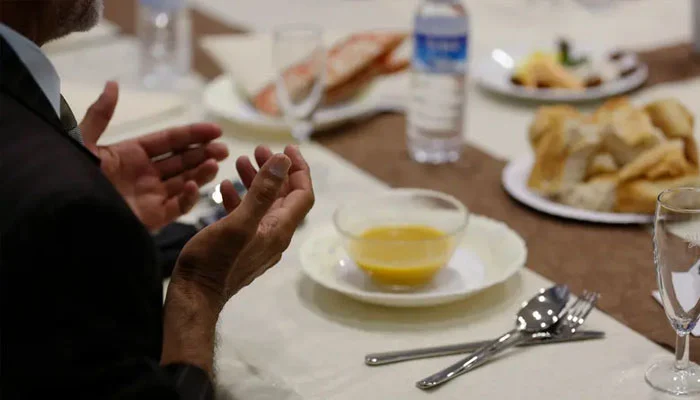With Muslims around the world fasting from sunrise to sunset during Ramadan, maintaining energy and water is critical, according to Al Arabiya.
Clinical Dietician Sara Abdelghany of Dubai’s Healthbay Clinic shared some advice on how to avoid dehydration, exhaustion, and other difficulties during fasting this Holy Month.
According to Abdelghany, meal planning is vital since daily calories should be divided between two to three meals and snacks. If you’re enjoying Iftar, she recommends avoiding deep-fried and fatty foods, as these might bring stomach aches and bloating.
Processed foods, such as sausages and breaded meats, as well as ready-to-eat soups, contain high levels of salt and monosodium glutamate, creating excessive thirst. Sugary beverages such as jallab, tamereddine, and fresh juices and soda add to weight gain and sugar cravings, leading to an elimination of the benefits of fasting.
.
Although Ramadan sweets can be enjoyed, moderation is crucial to preventing weight gain and hunger. Abdelghany recommends limiting Ramadan sweet consumption to three times per week and eating them in moderation.







